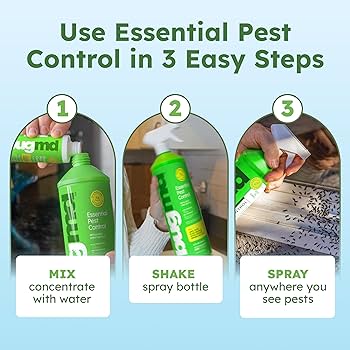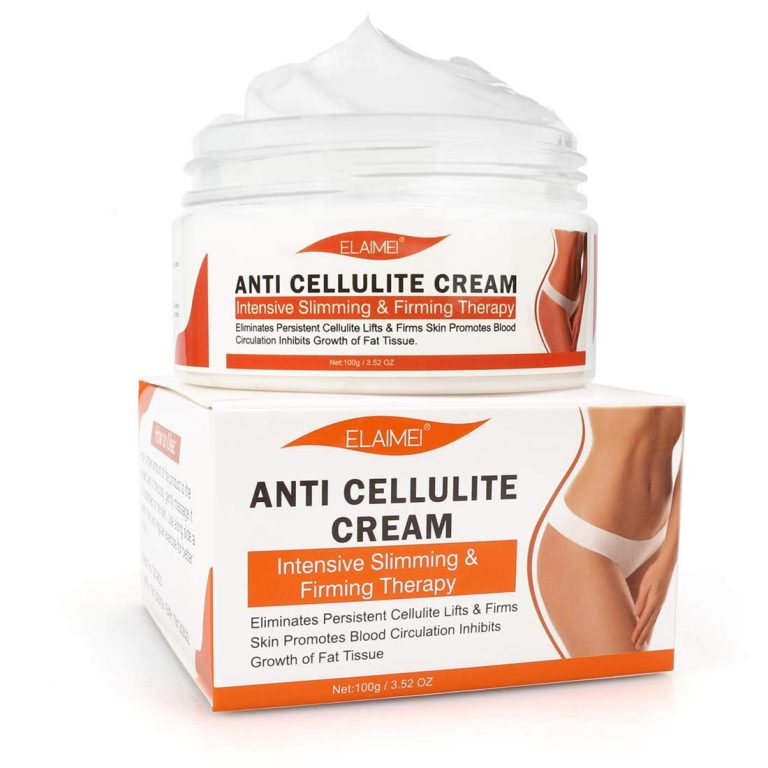9 Best Engine Degreasers Reviewed: Top Picks for Efficiency, Cost, and Eco-Friendliness
Keeping your engine clean isn’t just about aesthetics; it ensures optimal performance and longevity. Over time, grease, grime, and dirt can accumulate, leading to potential issues and inefficiencies. That’s where engine degreasers come in handy, providing a simple yet effective solution to maintain your engine’s health.
With countless options on the market, finding the right engine degreaser can feel overwhelming. We’ve narrowed down the choices to the 9 best engine degreasers that stand out for their efficiency, ease of use, and value. Whether you’re a seasoned mechanic or a DIY enthusiast, these top picks will help you keep your engine running smoothly.
Exploring Types of Engine Degreasers
Understanding the types of engine degreasers can help you choose the most effective product for your needs. Here, we delve into the main categories: water-based, solvent-based, and bio-based degreasers.
Water-Based Degreasers
Water-based degreasers are typically non-toxic and eco-friendly. They use water as the primary solvent, making them safe for both your engine and the environment. These degreasers often contain surfactants that break down grease and grime. For instance, Simple Green and Purple Power are popular choices that are effective yet gentle on engine components.
Solvent-Based Degreasers
Solvent-based degreasers use powerful chemicals to dissolve grease and oil. They’re highly effective for heavy-duty cleaning tasks. These products often contain petroleum-based substances, making them more potent but also more toxic. Safety precautions like wearing gloves and working in well-ventilated areas are essential. Gunk Original and CRC Heavy Duty Degreaser are well-known examples in this category.
Bio-Based Degreasers
Bio-based degreasers are made from natural ingredients like citrus or soy. They’re biodegradable and safer for the environment compared to solvent-based options. These degreasers are effective for medium-duty cleaning tasks and are less harsh on your engine parts. Citrus Magic and SoyPower are notable examples, blending performance with environmental responsibility.
Top 9 Engine Degreasers Reviewed
Let’s dive into the detailed reviews of the top 9 engine degreasers to help you choose the best one for your needs.
Product 1 Overview
Simple Green Pro HD
Designed for heavy-duty cleaning, Simple Green Pro HD is a water-based degreaser. It’s safe for use on metals, plastics, and rubber. This non-toxic formula effectively removes grease, grime, and stains without leaving residue. It’s also non-corrosive, making it gentle on surfaces.
Product 2 Overview
Gunk Original Engine Degreaser
Known for tough jobs, Gunk Original is a solvent-based degreaser. It easily cuts through thick layers of grease and buildup. Quick to work, it reaches hard-to-clean areas, making it ideal for older, heavily soiled engines. Its powerful formula requires safety precautions during use.
Product 3 Overview
Purple Power Industrial Strength Cleaner/Degreaser
Ideal for various surfaces, Purple Power is a strong, water-based degreaser. It easily removes oil, grease, and grime from engines, tools, and floors. Its biodegradable formula ensures it’s environmentally friendly. This versatile cleaner is safe for use on multiple materials.
Product 4 Overview
CRC Heavy Duty Degreaser
Formulated for professional use, CRC Heavy Duty is a potent solvent-based degreaser. It quickly dissolves tough oil and grease without leaving a residue. It’s perfect for both professional mechanics and DIY enthusiasts. Remember to use it in well-ventilated areas due to its strong fumes.
Product 5 Overview
Citrus Magic Heavy Duty Cleaner/Degreaser
Infused with natural citrus oils, Citrus Magic is a bio-based degreaser. It offers powerful cleaning while being environmentally safe. It effectively breaks down grease and oil without harsh chemicals. It’s perfect for those looking for a safer, greener option.
Product 6 Overview
Meguiar’s D10801 Super Degreaser
Favored by detailers, Meguiar’s Super Degreaser is a powerful solution. It quickly dissolves grease and grime without damaging engine parts. Its non-corrosive formula is safe on metals, plastics, and rubber. It’s also designed to rinse off without leaving residues.
Product 7 Overview
Oil Eater Original Cleaner/Degreaser
Versatile and powerful, Oil Eater is a water-based degreaser. It efficiently handles grease, oil, and dirt on various surfaces. Its biodegradable formula makes it safer for both users and the environment. It’s great for both light and heavy cleaning tasks.
Product 8 Overview
Chemical Guys Signature Series Orange Degreaser
Perfect for heavy-duty cleaning, this solvent-based degreaser removes the toughest grime. Chemical Guys’ formula breaks down baked-on grease and oil quickly. Its citrus scent helps mask chemical odors, making it more pleasant to use.
Product 9 Overview
SoyPower Engine Degreaser
Soy-based and biodegradable, SoyPower is an environmentally conscious choice. It efficiently cleans engines using natural soy solvents, breaking down grease and grime. It’s safe for users and the planet, making it an excellent alternative to traditional degreasers.
How to Use Engine Degreasers Safely and Effectively
Using engine degreasers properly ensures optimal performance and prevents damage to your engine components. Let’s dive into the step-by-step process and necessary safety precautions.
Step-By-Step Application Process
Prepare the Area: Park your vehicle in a well-ventilated area, ideally outdoors. Ensure the engine is cool to the touch to avoid burns or fire risks.
Cover Sensitive Parts: Use plastic bags or aluminum foil to cover electrical components, air intake, and other sensitive areas to prevent water and degreaser from damaging them.
Apply the Degreaser: Shake the degreaser can if required. Spray the degreaser evenly on the engine surface, focusing on oil and grime build-up. Avoid over-spraying to prevent run-off.
Allow to Sit: Let the product sit for the recommended time, usually 10-15 minutes. This allows the formula to break down the grease effectively.
Scrub if Necessary: Use a brush for stubborn areas. Agitate the cleaner to lift and remove tough grime.
Rinse Thoroughly: Use a garden hose with low pressure to rinse off the degreaser. Ensure no residue remains, as it can attract dust and dirt, leading to faster re-contamination.
Dry the Engine: Use a microfiber towel to dry the visible parts of the engine. Running the engine for 5-10 minutes can help evaporate any remaining moisture.
Safety Precautions
Wear Protective Gear: Always wear gloves, goggles, and long sleeves to protect your skin and eyes from harsh chemicals.
Ventilate Properly: Use the product in a well-ventilated area to avoid inhaling fumes. Breathing in degreaser can cause respiratory issues.
Follow Instructions: Adhere to the manufacturer’s instructions regarding application time and usage amount to avoid potential damage to your engine.
Dispose Responsibly: Never let the degreaser run into storm drains. Collect the run-off properly and dispose of it according to local hazardous waste disposal regulations.
Check Compatibility: Ensure the degreaser is compatible with your engine materials. Test a small, inconspicuous area first if you’re unsure.
Stable Position: Ensure your vehicle is on stable, level ground to prevent accidental rolling or shifting while cleaning.
These steps and precautions will help you effectively and safely use engine degreasers without harming your engine or the environment.
Comparison of Top Engine Degreasers
When choosing the best engine degreaser, it’s crucial to compare them on various aspects. Here’s a breakdown of their efficiency, price, and environmental impact.
Efficiency Comparison
- Gunk Original Engine Degreaser: Known for its fast-acting formula, this degreaser dissolves grease and grime effectively in minutes.
- Simple Green Pro HD: This option offers industrial-strength cleaning while being versatile for multiple surfaces.
- Purple Power Industrial Strength Cleaner/Degreaser: Excels at removing stubborn grease, making it ideal for heavily soiled engines.
- Meguiar’s Super Degreaser: Provides quick, residue-free performance, ensuring a clean engine without lingering residue.
- Chemical Guys Signature Series Orange Degreaser: Combines citrus power with deep cleaning capabilities, perfect for a spotless finish.
- WD-40 Specialist Degreaser: With a foaming action, it clings to surfaces for better penetration and cleaning.
- Oil Eater Original Cleaner/Degreaser: Biodegradable and powerful, it handles heavy grease removal well.
- Grease Relief All Purpose Degreaser and Cleaner: Offers all-purpose cleaning with the strength to tackle engine grime.
- CRC Heavy Duty Degreaser: Designed for tough, baked-on grime, delivering reliable results even with the most challenging grease.
Price Comparison
| Engine Degreaser | Price Range ($) |
|---|---|
| Gunk Original Engine Degreaser | 4 – 8 |
| Simple Green Pro HD | 15 – 30 |
| Purple Power Industrial Strength Cleaner | 5 – 15 |
| Meguiar’s Super Degreaser | 10 – 20 |
| Chemical Guys Signature Series Orange | 10 – 15 |
| WD-40 Specialist Degreaser | 8 – 12 |
| Oil Eater Original Cleaner/Degreaser | 10 – 20 |
| Grease Relief All Purpose Degreaser | 6 – 12 |
| CRC Heavy Duty Degreaser | 6 – 10 |
- Gunk Original Engine Degreaser: Contains petroleum-based ingredients, which may pose environmental concerns.
- Simple Green Pro HD: Biodegradable and non-toxic, making it an eco-friendly option.
- Purple Power Industrial Strength Cleaner/Degreaser: Though effective, it can be harsh on the environment; proper disposal is essential.
- Meguiar’s Super Degreaser: Designed to be safer for disposal but still requires caution due to chemical components.
- Chemical Guys Signature Series Orange Degreaser: Citrus-based and biodegradable, reducing its environmental footprint.
- WD-40 Specialist Degreaser: Contains solvents; appropriate disposal is needed to minimize environmental impact.
- Oil Eater Original Cleaner/Degreaser: Water-based and biodegradable, making it a safer choice for the environment.
- Grease Relief All Purpose Degreaser and Cleaner: Offers a more eco-friendly formulation, but it’s still necessary to follow use instructions carefully.
- CRC Heavy Duty Degreaser: Effective yet potentially harmful to the environment if not disposed of correctly.
What to Avoid When Using Engine Degreasers
While using engine degreasers can be highly effective for engine maintenance, it’s essential to know what to avoid to prevent damage and ensure safety.
Common Mistakes
- Using Too Much Product: Many people think more product ensures better cleaning, but it often results in waste and potential damage. Always follow manufacturer instructions on quantity.
- Not Covering Electrical Components: Failing to cover electrical components can lead to short circuits or other electrical issues. Use plastic covers or aluminum foil to protect these areas.
- Skipping Pre-Cleaning: Dirt and debris should be removed before applying degreasers. This step helps degreasers work more efficiently and prevents them from turning dirt into sludge.
- Ignoring the Dwell Time: Not letting the degreaser sit for the recommended time reduces its effectiveness. Give the product enough time to break down grease before rinsing it off.
- Inadequate Rinsing: Residual degreaser left on the engine can attract dirt and cause corrosion. Ensure you rinse thoroughly with water to remove all cleaner remnants.
- Using on Hot Surfaces: Applying degreasers on a hot engine can cause harmful fumes and reduce the effectiveness of the cleaner. Always apply when the engine is cool.
- Not Ventilating the Area: Performing degreasing in a closed area can lead to inhalation of toxic fumes. Ensure ample ventilation by working in an open space or using fans.
- Improper Disposal: Dumping used degreasers down the drain is harmful to the environment. Follow local guidelines for the disposal of chemical cleaners.
- Using the Wrong Products: Some degreasers are not suitable for all engine types. Ensure you’re using a product specifically designed for your engine to avoid damage.
- Skipping Personal Protection: Not wearing gloves, goggles, or masks can expose you to harmful chemicals. Always use appropriate personal protective equipment (PPE) when handling degreasers.
Conclusion
Choosing the right engine degreaser is crucial for maintaining your vehicle’s performance and longevity. By understanding the differences in efficiency, price, and environmental impact, you’re better equipped to make an informed decision. Remember to follow best practices when using these products to ensure safety and effectiveness. Proper usage not only protects your engine but also promotes environmental responsibility. With the right approach, your engine will stay clean and efficient, enhancing your vehicle’s overall performance.
Frequently Asked Questions
Why is engine maintenance important?
Regular engine maintenance is crucial to ensure the longevity and optimal performance of your vehicle. It helps prevent breakdowns, increases efficiency, and saves money on costly repairs.
What are engine degreasers used for?
Engine degreasers are used to remove grease, grime, and other build-ups from the engine and its components, ensuring better performance and easier maintenance.
How do I choose the best engine degreaser?
When choosing an engine degreaser, consider factors like efficiency, price, ease of use, and environmental impact. Read reviews and compare products to find the most suitable one for your needs.
What are some common mistakes to avoid when using engine degreasers?
Common mistakes include using too much product, not covering electrical components, skipping pre-cleaning, ignoring dwell time, and improper rinsing, among others.
Why should I cover electrical components before using an engine degreaser?
Covering electrical components is crucial to prevent water and chemicals from causing short circuits or damage, ensuring the safety and functionality of your engine.
What is “dwell time,” and why is it important?
Dwell time refers to the period the degreaser needs to sit on the engine surface to effectively break down grease and grime. It’s important for achieving the best cleaning results.
Can engine degreasers be used on a hot engine?
No, you should avoid applying engine degreasers on hot surfaces as it can cause the product to evaporate too quickly, reducing its effectiveness and potentially damaging engine components.
Is it necessary to rinse the engine thoroughly after using a degreaser?
Yes, thorough rinsing is necessary to ensure all residues are removed, which prevents potential damage or corrosion.
How should I dispose of used engine degreaser?
Used engine degreaser should be disposed of according to local regulations, as improper disposal can harm the environment. Avoid pouring it down drains or on the ground.
What personal protection should I use while applying engine degreaser?
Wear gloves, safety goggles, and a mask to protect your skin, eyes, and respiratory system from potentially harmful chemicals found in engine degreasers.






